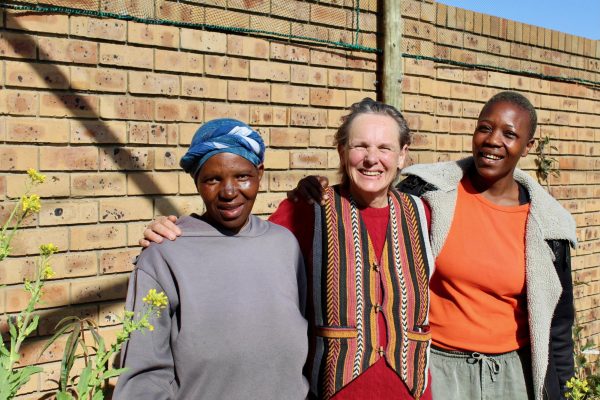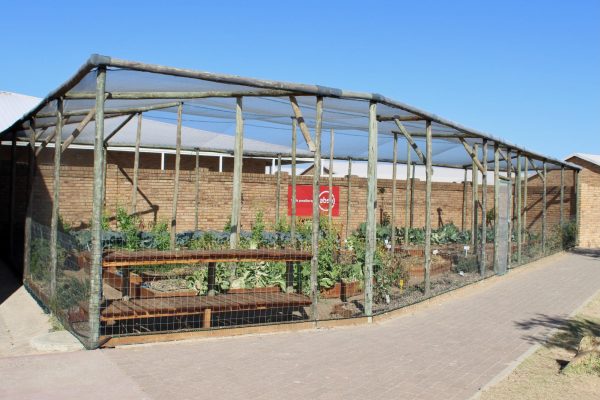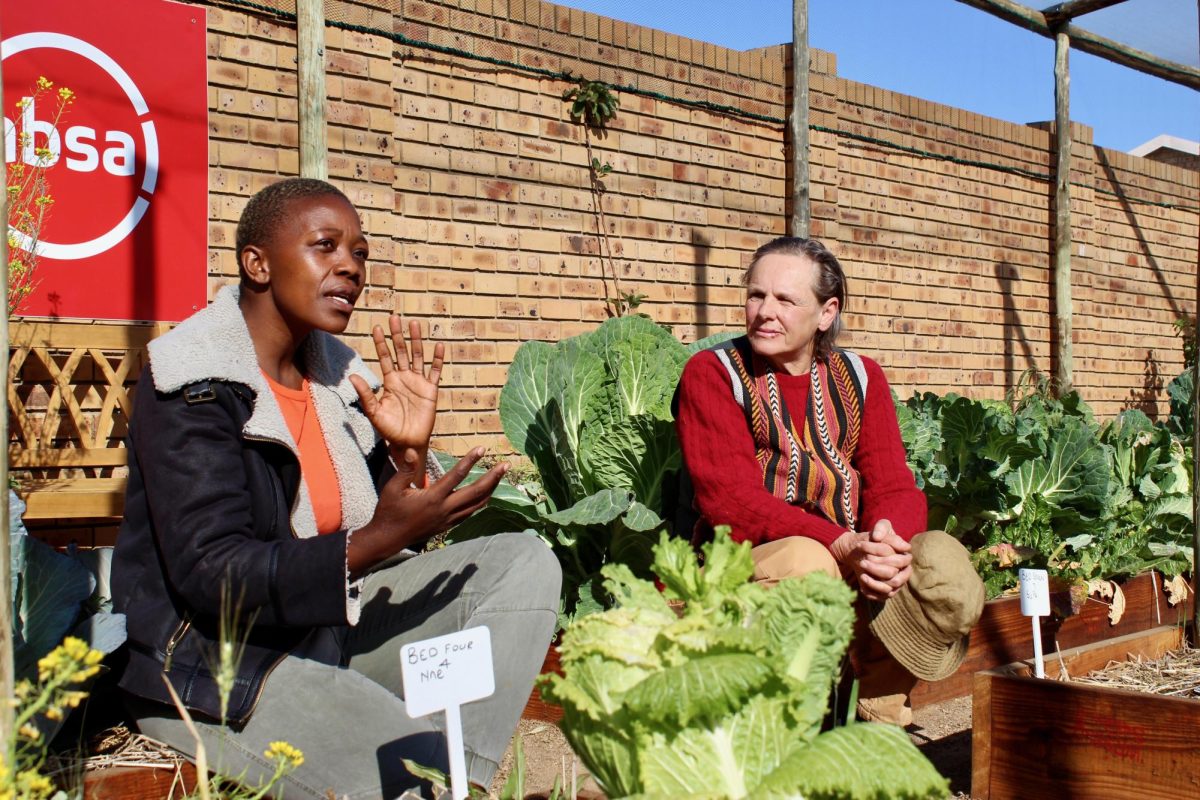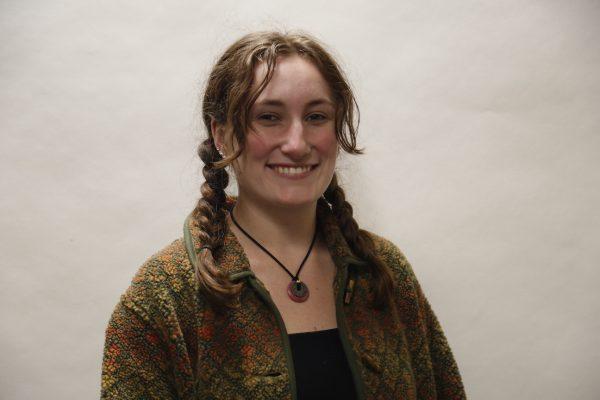Mautse, South Africa — After witnessing survivors of gender-based violence, substance abuse and child neglect struggle with a lack of adequate support from local and provincial government structures, Michèle Schiess found herself driven to create a place where women’s voices could be amplified.
Schiess, who previously worked in film and television production, launched Ma Tiger, a nongovernmental organization (NGO), on Women’s Day in August 2023. By then, Schiess, who has at least 20 years of experience in the NGO sector, had moved from Johannesburg to the rural Free State province to focus on regenerative farming, a form of agriculture that preserves soil based on ecological sustainability.
Ma Tiger aims to bring together women who have experienced trauma and help strengthen and inspire them to pursue systemic change.
“[The goal is] to put the power in people’s hands to make decisions about their future,” Schiess said. “So it’s about feeding the soul, finding what problems are around and then fundraising to realize those.”
The organization’s name comes from a variety of plays on words.
“Ma stands for mother and Tiger, well, the tigers are female too,” said Schiess.
Tigers also represent resilience, agility and adaptability, just as the women in the community do. And the 10 rand bill in South African currency (U.S. 55 cents) is also called a tiger.
“What we want to do is get six million South Africans, which is 10% of South Africans, paying 10 rand a month to fundraise,” Schiess said.
That money would then be used to fund “whatever it is that the community would want,” Schiess said.
To find out what the community wants, Ma Tiger had to listen to them. They hosted their first community event on April 11: a healing workshop in which they asked women to share what they needed for themselves and their communities.
“It’s to offer people a place where one would be able to talk freely,” said Mafusi Molefi, a Ma Tiger ambassador who helped run the workshop. “We are all equal.”
About 40 women, ranging in age from 17 to 60s, attended the workshop, which was designed to help them pinpoint the root causes of their past trauma.
Workshop leaders utilized a spirituality tool involving African family constellations, which aims to reestablish a healthy family dynamic by connecting women to their ancestral lineage, Molefi said.
“The ancestors know you connect with them, deep, and that’s for them to give that connection with this family,” said Molefi, who currently lives in Rosendal but was born in Lesotho, a landlocked country within South Africa that borders the Free State.
Schiess said the type of workshop Ma Tiger held works to resolve feelings of neglect deep-rooted in women of the community.
“Ancestral lineage is there for you to acknowledge, for you to connect with [the ancestors] spiritually,” Schiess said. “It’s to also lift this abandonment that the people are feeling within themselves.”

Schiess met Molefi when they both volunteered at a permaculture project on Waaipoort Farm in 2017. Waaipoort Farm is a NGO that regenerates land in the Rosendal and Mautse communities. Mautse was created as a Black township by the apartheid government under the Group Areas Act of 1950 and is located across the R70 highway from Rosendal.
Molefi and Schiess began working together more closely after the founding of Ma Tiger.
“I believe that when you get to change things within the community, you’re changing the mindset,” Molefi said. “You’re changing something that has been going on for generation after generation.”
While they plan for the next phases of the Ma Tiger project, Schiess and Molefi have found a way to expand their community work through a school garden initiative they launched in February, alongside the NGO Urban Harvest and with support from ABSA, a national bank.
The garden is located at Mautse Primary School and is filled with beetroot, tomatoes, cabbage, gooseberries and carrots, in addition to other seasonal fruits and vegetables. These are used to supplement the school kitchen as well as given to child-headed households. Proceeds from surplus produce sold to staff members are funneled back into the school kitchen to buy additional food for the children.
Masabata Nkepane, a Mautse resident who has experience and permaculture training, serves as garden steward for the project. She helps to tend the garden by ensuring the plants are watered and mulched properly, weighing the fruits and vegetables, and keeping records of the children’s daily consumption.
“If you already know how to take care of plants at home, it’s easier for you to be able to do this,” said Nkepane, who also serves on a Ma Tiger committee that deals with substance abuse.
Molefi, a life-long activist, said it is important to grow one’s own food because “healing is found within the soil.” She is eager to promote dialogue and discussion around food production and self sustainability.

Molefi said there is a lack of understanding in children about gardening and this initiative works to bridge the gap for children to learn more about the process.
“It engages kids more if they can smell, if they can touch, and tap into all these senses,” Molefi said. “They don’t see it’s used as a curriculum, so that’s where it comes from.”
Both Schiess and Molefi reiterated the team approach to the mission of Ma Tiger’s woman-led organization and the necessity of listening to all the women they work with to come up with effective solutions.
“In South Africa, we find that if one is prescriptive, there isn’t this complete ownership,” Schiess said. “If the idea comes from the ground up, that’s when you can really run with it. So that’s really what Ma Tiger is doing.”

















































